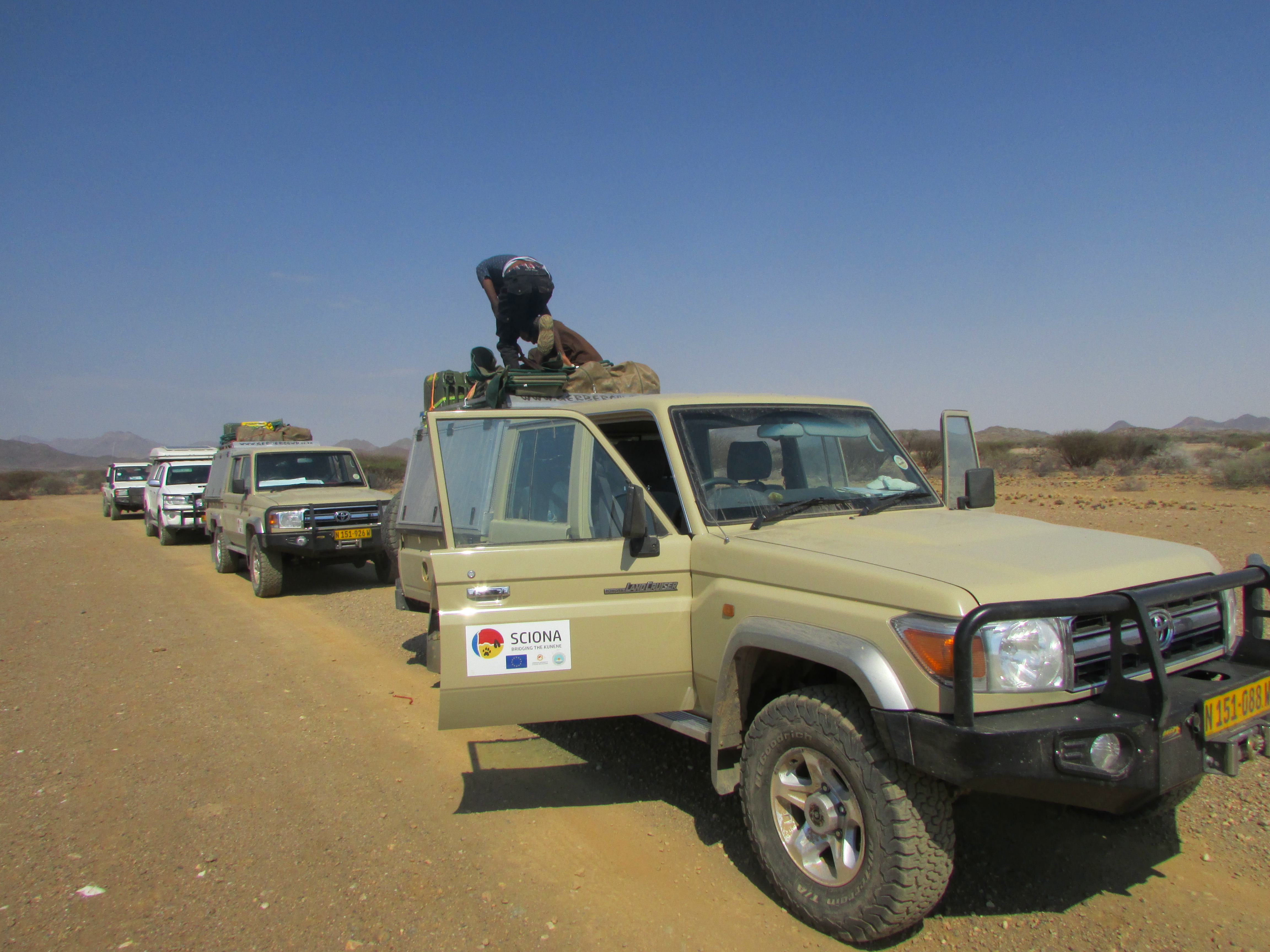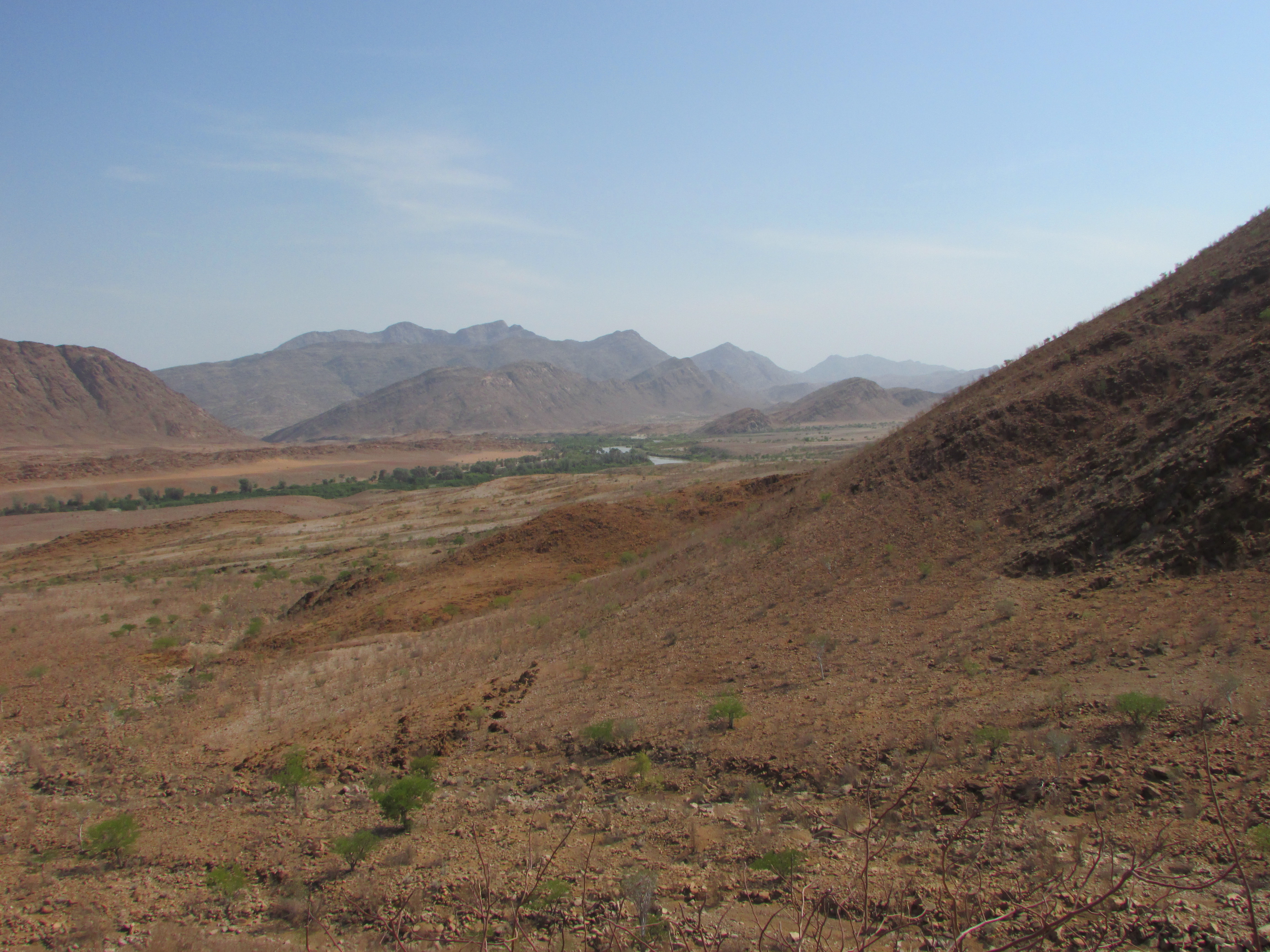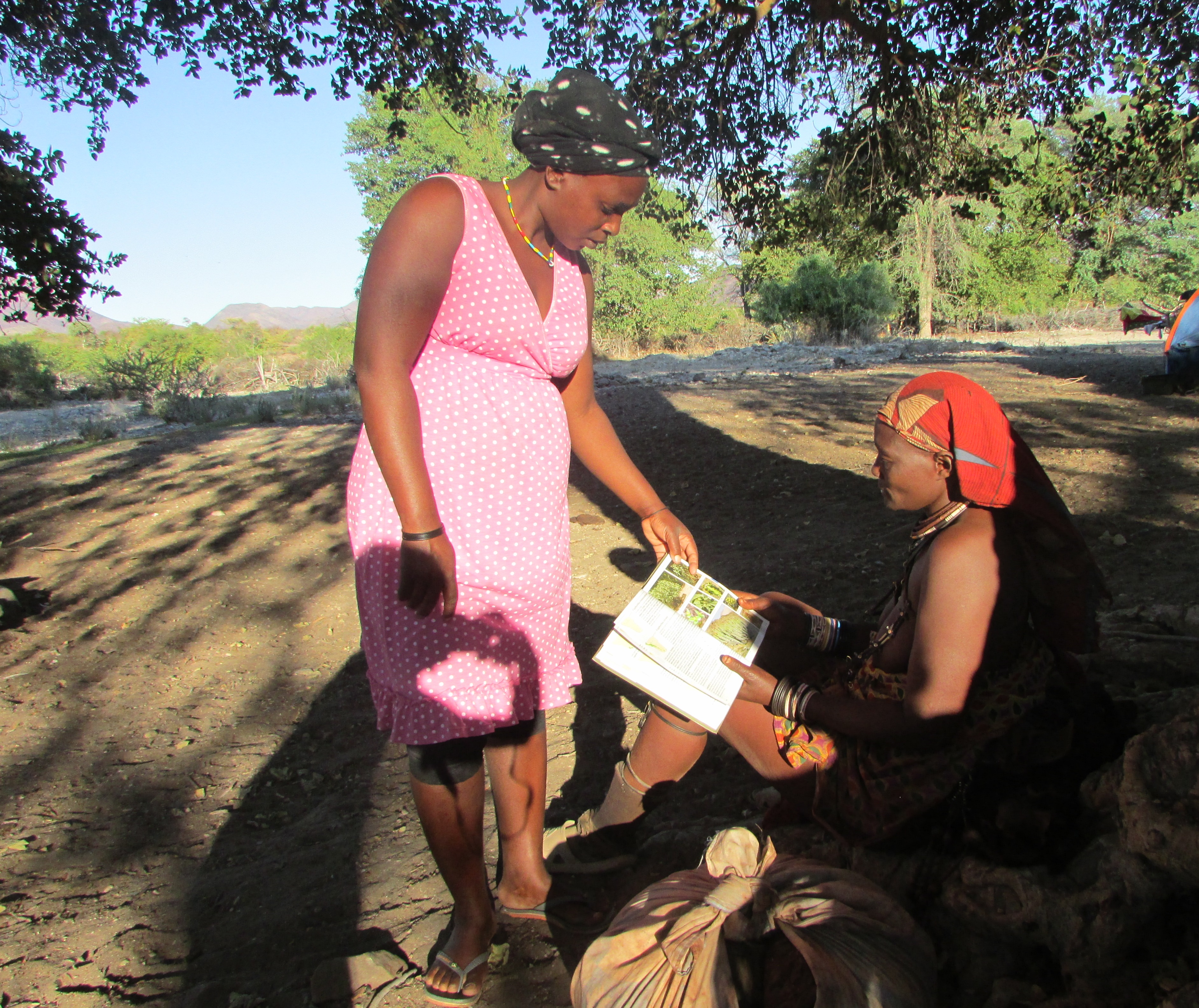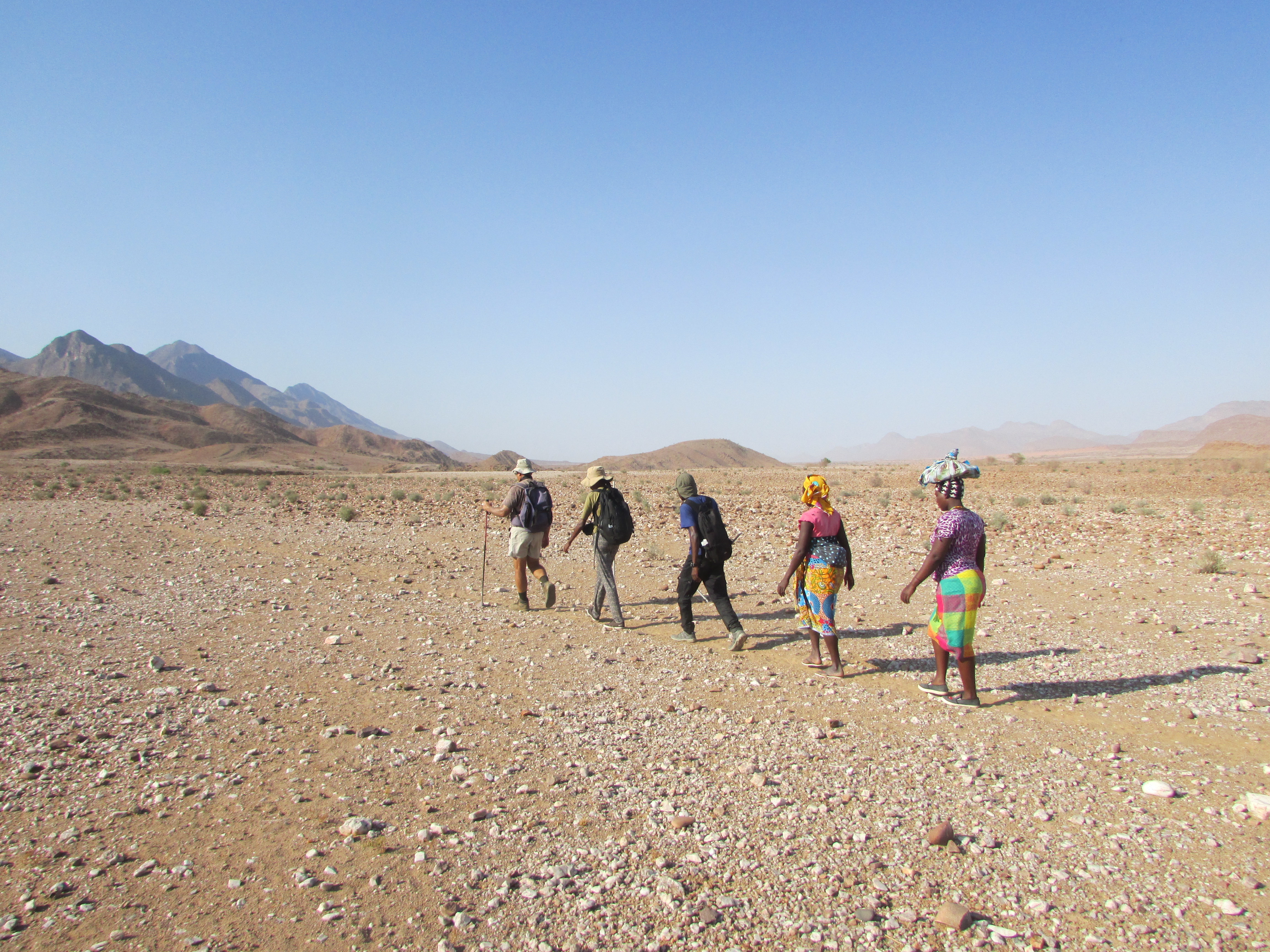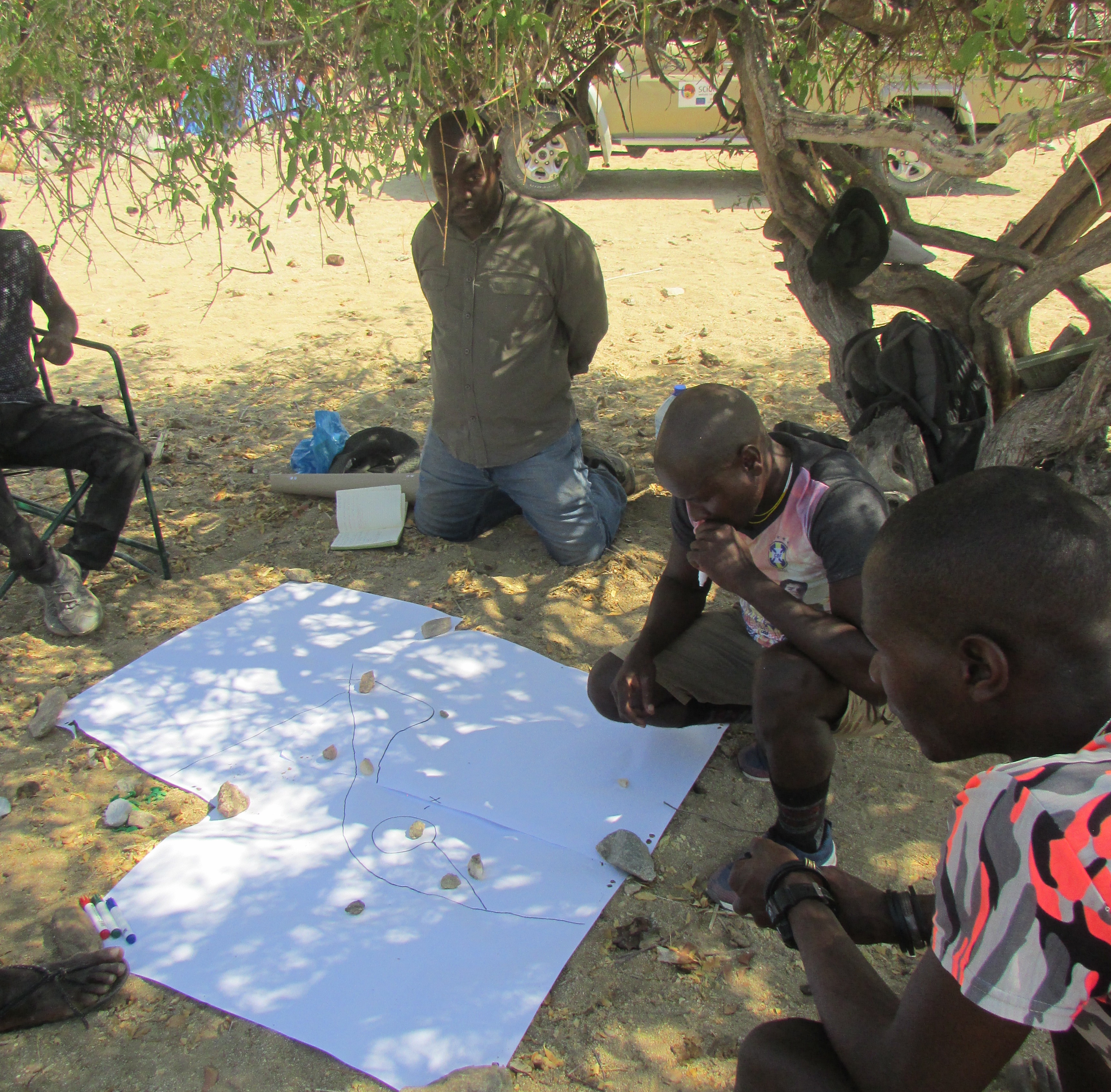Angolan and Namibian communities, scientists and park managers join forces in Iona National Park
A multidisciplinary SCIONA team travelled from Windhoek to Iona National Park in Angola during the second half of May 2019. Community workshops were held in and near the park: at Monte Negro near the border with Namibia, at Cambeno in the centre, and at Pediva just north of the park. The workshops aimed to engage local stakeholders in topics ranging from livelihoods to ecosystem management. The Angolan park authorities, including the current park manager Afonso Manuel Sebastião and the new park manager Sango dos Anjos Carlos de Sá, travelled with the SCIONA team and provided invaluable support.
Workshop participants were engaged in discussions on human-wildlife conflict and on livelihoods and social capital to explore livelihood opportunities. Participatory mapping exercises of community localities and ethnobotanical walks were performed. Rangeland managers joined to assess rangeland strategies and grazing rotations. Additionally, vegetation surveys were performed in cooperation with local plant experts that are being integrated as SCIONA para ecologists.
Travelling in Iona takes time, with three days needed to return from the furthest destination in Iona. The east of the park is normally inaccessible during rainy seasons, but this year roads remained passable by 4 WD vehicle because of the extreme drought. The drought severely affects vegetation, resulting in a lack of fodder for game and livestock. Communities have to graze their livestock further than recounted in living memory, while browsing impact and tree mortality is high.
The Monte Negro workshop was a highlight of the trip, being a transboundary interaction with more than 60 participants, including community representatives of Iona, Cambeno, and Monte Negro, as well as the Namibian Okanguati conservancy attending. It was made possible through the support of both Namibian and Angolan governments who allowed the SCIONA team and Okanguati community members to cross the border by boat over the crocodile infested Kunene River at Monte Negro.
Author(s): V. De Cauwer and T. Moyo

